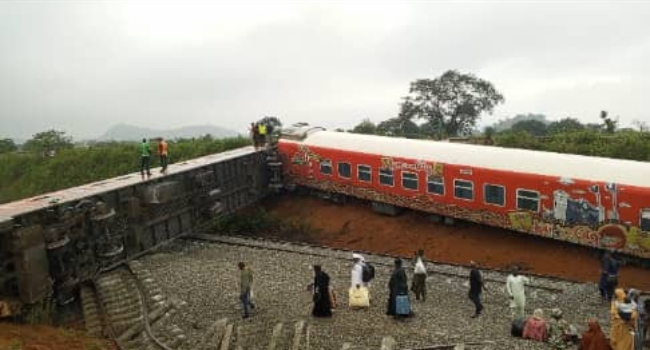The derailment of the Abuja-Kaduna train on Tuesday, shortly after its departure from Abuja, has prompted a thorough investigation and a temporary suspension of services on the route. The Managing Director of the Nigerian Railway Corporation (NRC), Kayode Opeifa, has taken full responsibility for the incident and assured the public of a transparent investigation by the Nigerian Safety Investigation Bureau (NSIB). Opeifa emphasized that the NSIB will determine when the site is safe for reconstruction, after which the NRC anticipates a 30-day period to restore the tracks and resume operations. He expressed gratitude that there were no fatalities, acknowledging it as a “near miss,” and confirmed that while four passengers sustained serious injuries, others were discharged promptly. The NRC is committed to providing follow-up care for all passengers, including addressing potential post-traumatic stress.
Opeifa stressed that the NRC’s priority is the safety and well-being of its passengers. He highlighted the recent proactive closure of the Warri-Itakpe route for three weeks due to safety concerns, demonstrating the corporation’s commitment to addressing potential risks. Extensive track repairs and replacements are underway on that route to prevent similar incidents. While the cause of the Abuja-Kaduna derailment remains under investigation, Opeifa refrained from speculating on sabotage, emphasizing the need to await the NSIB’s findings. He did, however, underscore the presence of military personnel along the corridor, noting that there had been no previous incidents of banditry or terrorist attacks in the area.
The derailment occurred amidst heightened security concerns in the region, though Opeifa emphasized that the tracks are typically monitored by military personnel to prevent vandalism and terrorist attacks. He reiterated that the investigation will be crucial in determining the exact cause of the incident and assured the public that the NRC will fully cooperate with the NSIB. In the aftermath of the derailment, the NRC swiftly initiated a refund process for all passengers’ ticket fees. This incident follows a previous derailment in January 2023, which also involved an Abuja-Kaduna train near Kubwa, though no casualties were reported in that instance.
The current focus remains on the thorough investigation being conducted by the NSIB, which will provide crucial insights into the circumstances surrounding the derailment. Pending the outcome of this investigation, the Abuja-Kaduna train service remains suspended, reflecting the NRC’s commitment to prioritizing passenger safety. Opeifa’s public acceptance of responsibility and the NRC’s proactive measures, including the temporary closure of other routes for safety upgrades, underscore the corporation’s commitment to enhancing its safety protocols and preventing future incidents. The assurance of thorough follow-up care for the affected passengers, particularly those with serious injuries and potential post-traumatic stress, demonstrates a passenger-centric approach in the aftermath of this unfortunate event.
The incident highlights the ongoing challenges faced by the Nigerian railway system in ensuring the safety and security of its operations, particularly in areas prone to security risks. The collaboration between the NRC, the NSIB, and the military will be essential in determining the root cause of the derailment and implementing appropriate measures to mitigate future risks. The incident underscores the importance of ongoing investment in infrastructure maintenance and security protocols to ensure the long-term viability and safety of the Nigerian railway network. As the investigation progresses, the NRC’s transparency and commitment to passenger safety will be crucial in rebuilding public confidence in the Abuja-Kaduna train service.
The incident serves as a stark reminder of the critical need for robust safety measures and ongoing vigilance in railway operations, particularly in regions facing security challenges. The prompt response by the NRC, including the suspension of services and the initiation of refunds, demonstrates a commitment to passenger welfare. The collaborative investigation involving the NSIB and other relevant agencies is essential for determining the precise cause of the derailment and implementing preventative measures for the future. The ongoing monitoring of the railway corridor by the military underscores the importance of security in ensuring safe and reliable train services. Ultimately, the lessons learned from this incident will be crucial in strengthening the safety and resilience of the Nigerian railway system.














